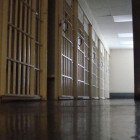
Ex-Penn State President Faces New Charges in Sandusky Case
|
Pennsylvania will prosecute former Penn State President Graham Spanier on charges that he helped cover up sex abuse charges against former assistant football coach Jerry Sandusky, the state attorney general announced. She also announced new charges against two Spanier deputies. “This case is about three powerful and influential men who held positions at the very top of one the most prestigious universities in the nation, three men who used their positions at Penn State to conceal and cover up for years activities of a known child predator,” said Pennsylvania Attorney General Linda Kelly at a Harrisburg press conference on Nov. 1. The state charged Spanier with one count of perjury, two counts of endangering the welfare of children and two counts of criminal conspiracy, all third-degree felonies which are each punishable by up to seven years in prison and $15,000 fines.








